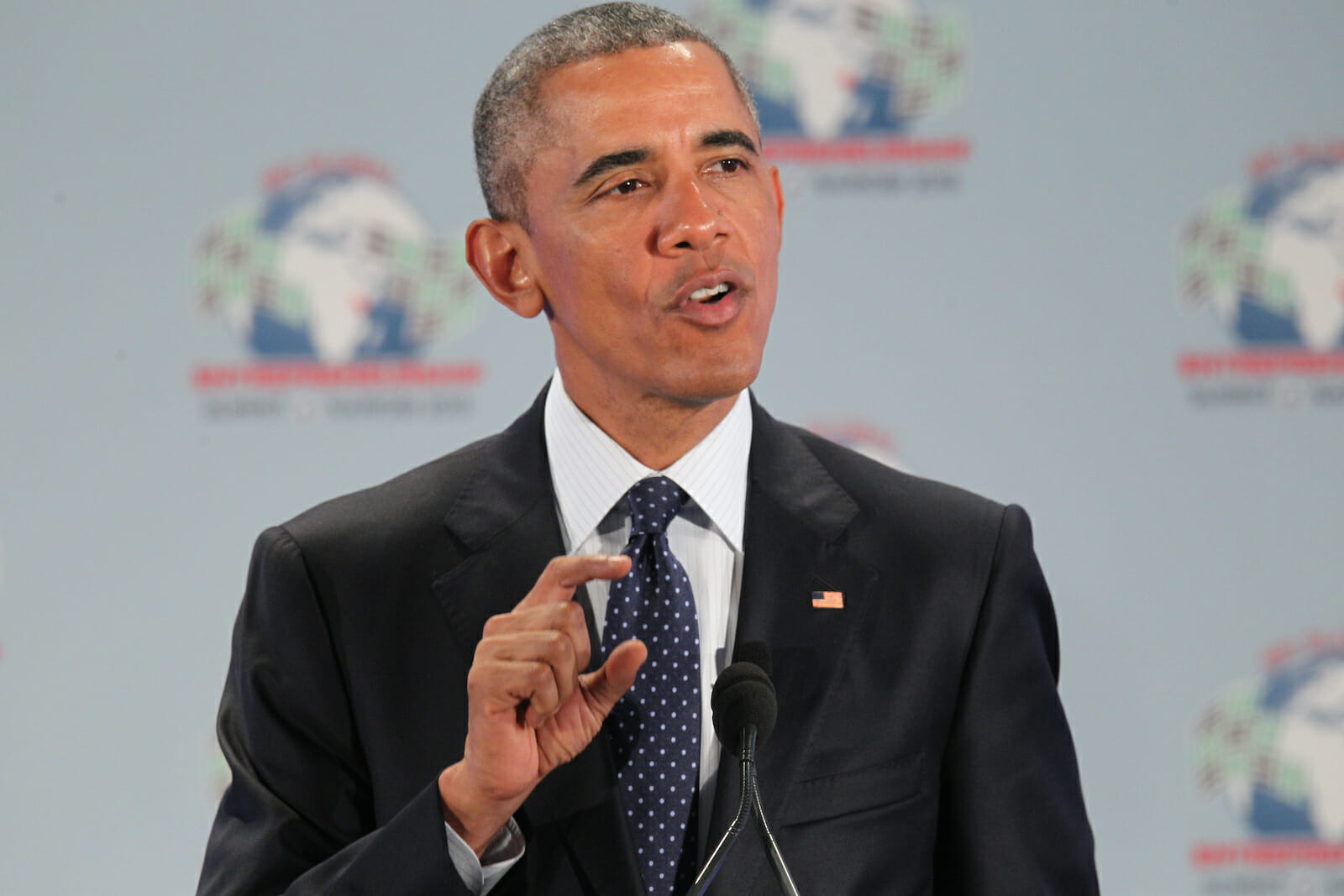
Obama’s Missed Opportunity in Africa
Africans anxiously awaited President Obama’s return to sub-Saharan Africa, but they may be disappointed when he leaves Wednesday unless he announces a major initiative to promote trade. Many remember his first trip — a 24-hour visit to Ghana in 2009. During that brief stay, he said, “Development depends on good governance — [the] ingredient which has been missing in far too many places, for far too long. That’s the change that can unlock Africa’s potential.”
Obama — who visited Senegal, South Africa, and Tanzania on this trip — spoke Sunday to an audience of future African leaders at the University of Cape Town. Obama could have used that opportunity to stress a new vision for Africa, where 50 percent of the population lives in poverty. He could have emphasized that trade is worth five times more than aid.
The Cape Town speech could have been a defining moment for Mr. Obama, with millions of Africans tuned in.
He had a chance to set the tone for a new engagement policy for sub-Saharan Africa and to continue the legacy of his predecessors. Instead, Obama pledged more aid — $7 billion for electricity projects in five African nations — and warned the audience not to trust any foreign country or company offering to build projects unless they benefit Africans themselves.
Obama also alluded to the U.S. holding a summit with African leaders next year. Obama squandered a chance to announce that he would work to make the African Growth and Opportunity Act (AGOA) a permanent program and spread the benefits of free trade throughout the continent.
The act could easily be the centerpiece of the proposed U.S.-Africa summit. While serving as U.S. ambassador to three African nations, I hosted the second AGOA forum, the first held in Africa. At the time of the 2003 forum in Mauritius, the program included 37 African countries approved for duty-free and quota-free access to the U.S. markets for more than 6,400 items. Today, the program benefits 40 countries. To qualify for the benefits, the African countries had to show an improvement in democracy, the rule of law, human rights, transparency and a commitment to work standards — all cornerstones of Obama’s remarks on democracy. Next month’s AGOA Forum in Addis Ababa, Ethiopia, would be a good place for Obama to announce his first U.S.-Africa summit, proposing that the forum be the springboard to a new Africa economic engagement policy. This year’s theme is perfect: “Sustainable Transformation through Trade and Technology.”
Africans have been disappointed with the U.S.’ limited engagement with sub-Saharan Africa during the Obama administration — often contrasting it to China’s engagement. Chinese leaders regularly visit Africa, having developed lasting friendships with all of the 49 sub-Saharan African countries. The U.S. has been considered a fair-weather friend with an inconsistent foreign policy. China has had an economic presence in Africa since the 1950s and will do whatever it takes to protect its multibillion-dollar deals there. China has held major summits with African leaders every three years since 2000, alternating between Beijing and an African location, to advance China’s economic interests.
African leaders attending these meetings on trade and investment increasingly have received loans for China’s economic access — and China increasingly has forgiven the debt. In 2009, with 50 African leaders attending the summit, China committed to more than $15 billion in new loans and canceled an equal amount of debt from the poorest nations. In 2012, Beijing committed an additional $20 billion in loans to African countries — gaining more access to Africa’s natural resources. Chinese investments have paid off, with trade volume growing from $9 billion in 2000 to more than $150 billion in 2012. U.S. trade, meanwhile, remains at $95 billion. Mr. Obama’s trade policy has a long way to go to catch up.

